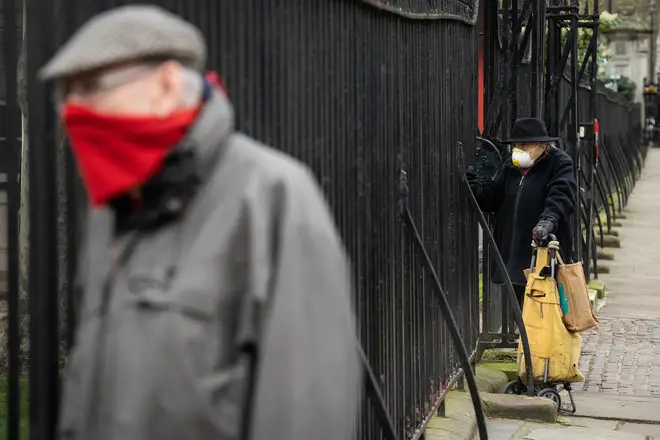What does it mean if the UK is in lockdown amid coronavirus pandemic?
23 March 2020, 20:57 | Updated: 23 March 2020, 21:09
What does going into total lockdown actually mean? And when does the UK lockdown start?
Many countries across the world are currently trying to contain the spread of Coronavirus by going into 'lockdown'.
This involves restricting the movement of residents and only allows people to leave their home to go to work, hospital or food shops.
You can find the latest Coronavirus (Covid-19) advice from the NHS here.
But now that Boris Johnson has announced a lockdown in the UK as well, what does this mean? And when does the lockdown start? Find out everything…
What does it mean to go on lockdown?
'Lockdown' isn't a technical term and public health officials often refer to it as 'mass quarantines'.
The drastic measures include blanket travel restrictions, a ban on all public events, the closures of schools and public spaces, as well as the suspension of religious services.
Prime Minister Boris Johnson announced on Monday that all non-essential shops are now closed except: food, pharmacy, newsagents, vets, petrol stations, hardware, banks, laundrettes and undertakers.
He said parks will stay open but communal play areas are closed and places of worship are closed except for funerals.
There will be no gatherings of more than 2 people except for households and roads and rail networks will remain open for essential workers to get to work.
Everyone should now stay in their homes unless:
- Shopping for food or medicine
- Exercise for yourself or pets alone or with members of your household only
- Medical appointments or as a carer visiting a vulnerable person
- Travel to and from work for essential workers only
The police will have emergency powers to arrest or fine anyone who doesn't apply with the new measures.

When does lockdown start in the UK and how long will it last?
The stringent plans will take affect from midnight on Tuesday morning and will be reviewed in three weeks.
What is lockdown like in Italy?
A British woman living in Italy recently revealed what it’s like living in this ‘total lockdown’.
Speaking on This Morning from a village outside of Rome, Elaine Dent explained that nobody is allowed to leave their own borough without a certificate stating where they are going.
“There are road blocks everywhere and the police stop you because they want to know where you’re going, and you have to show them a certificate.”
She added: “They can check up on you and if you’re not telling the truth, it’s up to three months imprisonment.”
Elaine - who is originally from North Hampton - went on to reveal that only one person per household is allowed to leave at one time to go to the local shop for food.
“My husband will go out one day, and I will go the next to get food from the local shop.
“Sometimes you have to stand outside and keep more than one and a half metres away from anyone else. Only a few people are allowed in the shop at once, it’s very well organised.”
Why did the UK go into lockdown over coronavirus?
Boris Johnson recently described the pandemic as "the worst public health crisis for a generation", and schools in Wales, Northern Ireland and Scotland have now completely shut.
And after a weekend of groups spending time in parks, on beaches and at markets, the prime minister said the UK now has to face lockdown.
Boris Johnson said: “If people can’t make use of parks and playgrounds responsibly, in a way that observes the 2-metre rule, then of course we’re going to have to look at further measures.”






















